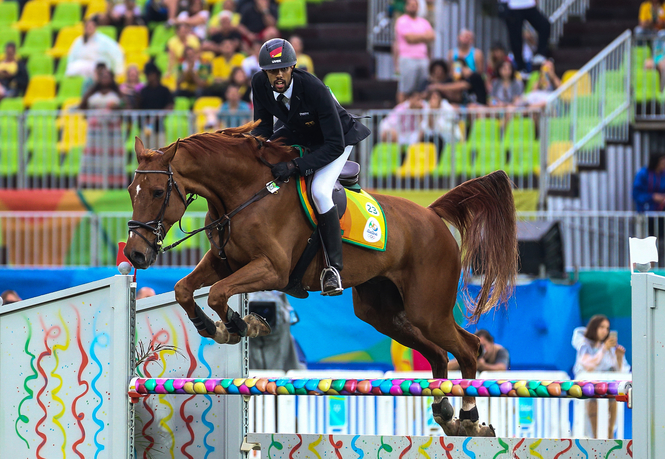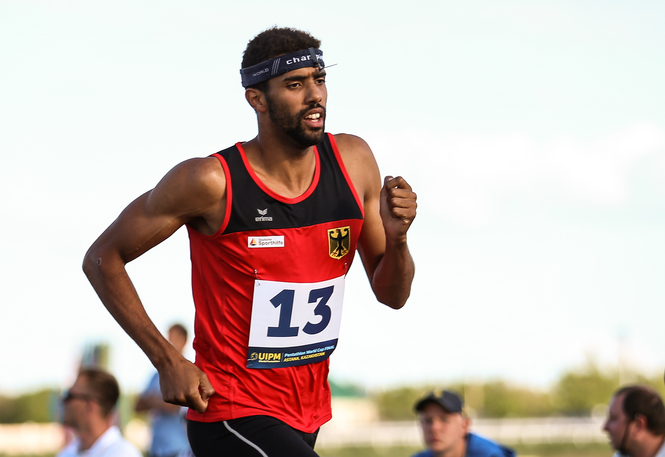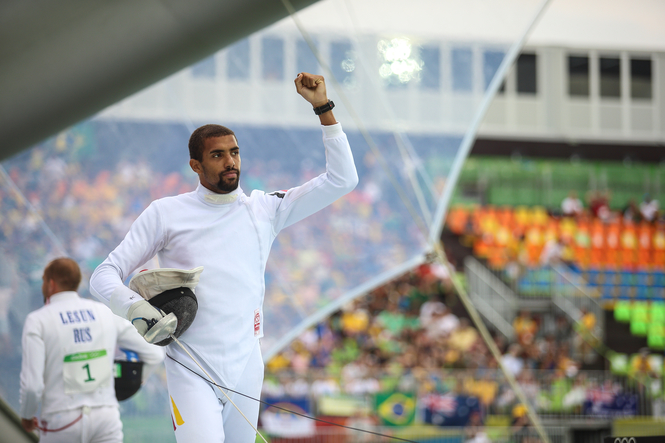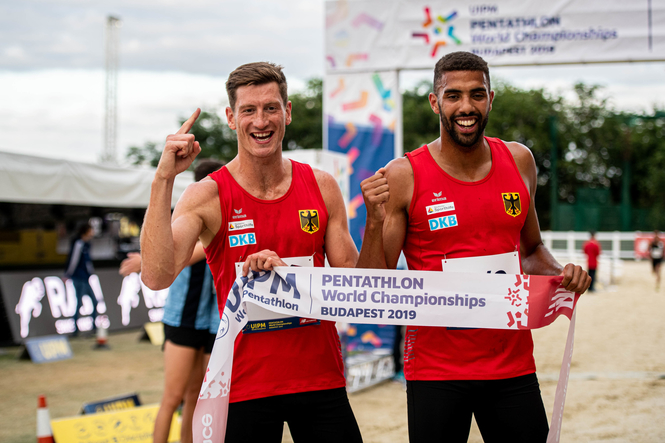Road to Tokyo: Patrick Dogue (GER) stays focused on ‘business’ of Tokyo 2020
Patrick Dogue has been a towering figure in Modern Pentathlon since his international debut as a 16-year-old youth athlete in 2008. It was in 2016 that he reached a competitive ascendancy.
In May of that year, the German won silver at the UIPM 2016 Pentathlon World Cup Final in Sarasota (USA), filling him with confidence for the debut Olympic Games that awaited him in Rio de Janeiro (BRA).
Dogue (GER) performed superbly at Rio 2016, since when he has collected numerous accolades including gold medals at the UIPM Champion of Champions (2016) and the CISM Military World Championships (2018).
Now 28, he has constantly kept up with emerging competition internationally and within the German team, not least with his younger brother and rival Marvin – currently ranked 14 places his brother at No.5 in the world rankings.
In our latest #RoadToTokyo interview, the elder Dogue (GER) describes how he has remained focused throughout the disrupted year of 2020.
Q: How did it feel in 2019 when you secured your qualification place for the Tokyo Olympics at the European Championships?
A: A burden fell off my shoulders at that time. My entire focus this year was on this competition. I really wanted to get a qualification spot for the Olympic Games. I know that it is still not enough with such a strong German team behind me, but I was relieved.

Q: You finished 6th at Rio 2016 – how would you describe your first Olympic experience?
A: The first Olympics were amazing. I was the underdog at the time and glad that I even qualified. That I finished 6th was unexpected. I think I made a lot of people proud. That made me feel very good. This whole adventure and the vibes at that time were so much fun. I still can't describe it.
Q: What are your thoughts on the Olympics being postponed until 2021?
A: Of course, it is a shame that the Olympic Games do not take place as expected, but if you look at the current situation around the world, a major event of this kind is not possible. In my opinion it was the right decision. We can only hope that we will find a vaccine soon, otherwise I'm not sure about next year either.
Q: If selected to represent Germany at Tokyo 2020 in 2021, will you change anything about your preparation compared to Rio 2016?
A: The 2016 Olympics were fun but now it's business. I've become much more professional and focused, but I try to keep my looseness. My coaches and I have a good mix of old and new things when it comes to preparing for Tokyo.

Q: How have you been keeping up your physical and mental health during the Coronavirus crisis?
A: I didn't have a motivation problem, even when the Olympic Games were postponed, I saw it as an opportunity to get even better in a year's time. The sports halls were partially closed, but I was able to train very well for the conditions. Despite COVID-19, I'm in good shape
Q: What has been the most challenging part?
A: The most challenging part for me was to get used to social distancing. I miss going out with friends or sharing time with my family. My uncle and grandpa had their birthday and I couldn't be there.
Q: And what positive things have you seen?
A: Funnily enough, I can't remember the last time I was at home for such a long period, especially in summer. I enjoyed this time, but I also look forward to being on training camps and competition trips for weeks

Q: When, and why, did you take up the Modern Pentathlon?
A: When I was 11, I was asked in my school if I would like to take part in a talent scouting for Modern Pentathlon. I got enthusiastic about the sport pretty quickly and then joined a club. Thanks again to my old English teacher, she made me sign up back then.
Q: What motivates you in training?
A: When it comes to sports, I don't need motivation. I'm a bit crazy about this and I rather need someone to hold me back, so that I can take a day off.

Q: Describe yourself as an athlete in three words.
A: Motivated, focused, relaxed
Q: Who are your role models in sport, and in life?
A: My greatest role models are Ole Einar Björndalen, Kenenisa Bekele and Michael Phelps. All of them had an extreme mental strength which was the cornerstone of their incredible careers. I like to watch old races and I still get goose bumps.
Q: What is your ultimate ambition in Modern Pentathlon?
A: I would like to leave the arena at some point but not be forgotten in the history of Modern Pentathlon.




